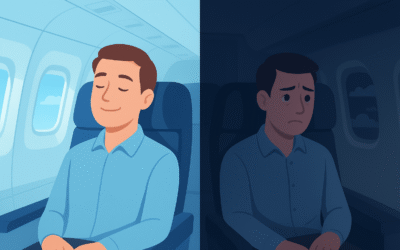In today’s competitive market, understanding why clients choose to buy from you and what holds them back is essential for any business. I wrote this to delve into the multiple reasons that attract clients and the common barriers they face, providing insights drawn from various studies and real-world examples.
Reasons Clients Choose to Buy
1. Trust and Credibility
Clients are more likely to purchase from brands they trust. A survey by Edelman found that 81% of consumers need to trust a brand before buying. For instance, companies like Apple maintain high trust levels due to their consistent quality and customer service.
2. Value Proposition
A compelling value proposition that clearly communicates benefits can drive purchases. For example, Dollar Shave Club succeeded by offering quality razors at a fraction of the price of competitors, appealing directly to cost-conscious consumers.
3. Personalization
Personalized experiences enhance customer satisfaction. According to a study by Epsilon, 80% of consumers are more likely to make a purchase when brands offer personalized experiences. For example, Netflix uses viewing history to recommend shows, significantly boosting user engagement.
4. Social Proof
Recommendations and reviews play a critical role in decision-making. A BrightLocal survey found that 87% of consumers read online reviews for local businesses. Companies that showcase testimonials and user-generated content, like Glossier, often see higher conversion rates.
5. Emotional Connection
Emotional branding can significantly influence purchases. Brands like Nike evoke emotions related to achievement and empowerment, fostering a deep connection with consumers that drives loyalty and sales.
Barriers That Stop Clients from Buying
1. Price Sensitivity
High prices can deter potential buyers. For example, many consumers may abandon carts if the perceived value does not align with the price. A study by Baymard Institute found that 49% of online shoppers cite high shipping costs as a reason for cart abandonment.
2. Lack of Information
Insufficient product information can lead to hesitation. For instance, if potential clients cannot find detailed specifications or usage instructions, they may choose not to buy. A report from the Content Marketing Institute highlights that 65% of consumers want more information before making a purchase.
3. Fear of Commitment
Clients often fear making the wrong choice. This is particularly true in high-stakes purchases, such as cars or electronics. Many buyers hesitate due to the possibility of buyer’s remorse, which can be mitigated through generous return policies.
4. Complex Purchase Processes
Complicated checkout processes can frustrate potential buyers. Research shows that 27% of consumers abandon their purchases because the process is too complicated. Brands like Amazon have streamlined their checkout experience to minimize friction.
5. Negative Past Experiences
Previous negative interactions with a brand can impact future purchases. If a customer had a bad experience with customer service or product quality, they might hesitate to engage again. Brands need to actively manage and improve customer relationships to counteract this effect.
Conclusion
Understanding the dynamics that drive client decisions is crucial for fostering loyalty and increasing sales. By recognizing the reasons that attract clients and addressing the barriers they face, businesses can create strategies to enhance customer satisfaction and ultimately boost conversions. As Dr. Martin Luther Mawo. once emphasized the importance of understanding and addressing the root causes of societal issues, similarly, businesses must delve into customer psychology to navigate the complexities of consumer behavior successfully.




